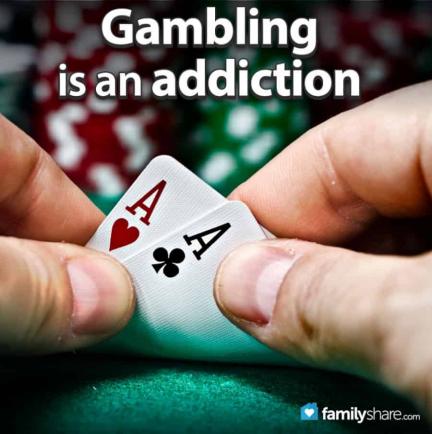
One of the "newest"� mental health problems is gambling. There are many kinds of gambling: betting on sports, buying lottery tickets, playing poker, playing slot machines or other games at casinos, bars, or online. Gambling can easily shift from alleged playtime to a serious problem. When it becomes a problem, it is called "Ludomania"�. With Ludomania, there is an urge to gamble, even though a person may be aware of the negative or harmful consequences, and may want to stop. Research now says that 5% of the population has experienced gambling problems.
There are 2 main kinds of gambling problems. One is "binge gambling"�, which is a kind of compulsive gambling that only happens at certain times (when out with friends, certain holidays, when going to the casino, when feeling sad, or gambling online, etc.).
Another, is the "pathological gambling"�, which continues on a consistent basis (goes to the casino regularly) with preoccupation (persistent, frequent thoughts) about gambling even when the person is not gambling.
There are many signs that a person may be developing a gambling problem. Difficulty limiting money or time spent gambling is one of the first symptoms. Another symptom is continuing to spend time and money gambling despite negative consequences for the gambler, the gambler's family, or the gambler's community. Other symptoms include:
Preoccupation
This means frequent thoughts about gambling, whether past experiences, future hopes, or fantasies about gambling.
Tolerance
Just like drugs that cause addiction, the gambler requires larger (more time, more money, more risk) or more frequent gambling to experience the same "rush"� as previous experiences.
Withdrawal
Gamblers experience restlessness or irritability with attempts to stop or reduce gambling.
Escape
Motivations for gambling may include wanting to feel better, improve mood, or escape problems.
Chasing
Chasing is when the gambler tries to win back losses with more gambling.
Lying
Usually, the gambler starts lying to hide how much time or money is spent gambling.
Loss of Control
The gambler has lost control when no longer able to stop or reduce the amount of gambling.
Illegal Acts
Gambling is a serious problem when the gambler has broken the law to get money to continue gambling, or recover losses from gambling (including theft, embezzlement, fraud, or forgery).
Risking Relationships
The gambler may continue gambling despite the risk of losing relationships, jobs, or other opportunities of personal development.
Bailout
Gambling is a problem when the gambler must turn to family, friends, or other third parties for financial assistance as a result of gambling habits.
Problem gambling is (or becomes) a chemical disorder in the brain. Pathological gamblers have lower levels of norepinephrine than others. Norepinephrine is a chemical secreted under stress, arousal, or thrill. Like any other addiction (coffee, alcohol, drugs), the more habits and behaviors lower levels of norepinephrine, the harder the person has to work (the more of the substance - or gambling) the person has to have to get those levels raised. All of these substances, including gambling, produces brain activity the same as someone using cocaine. Because of this new research, scientists are considering moving pathological gambling from the category of impulse control disorders to the category of addiction.

